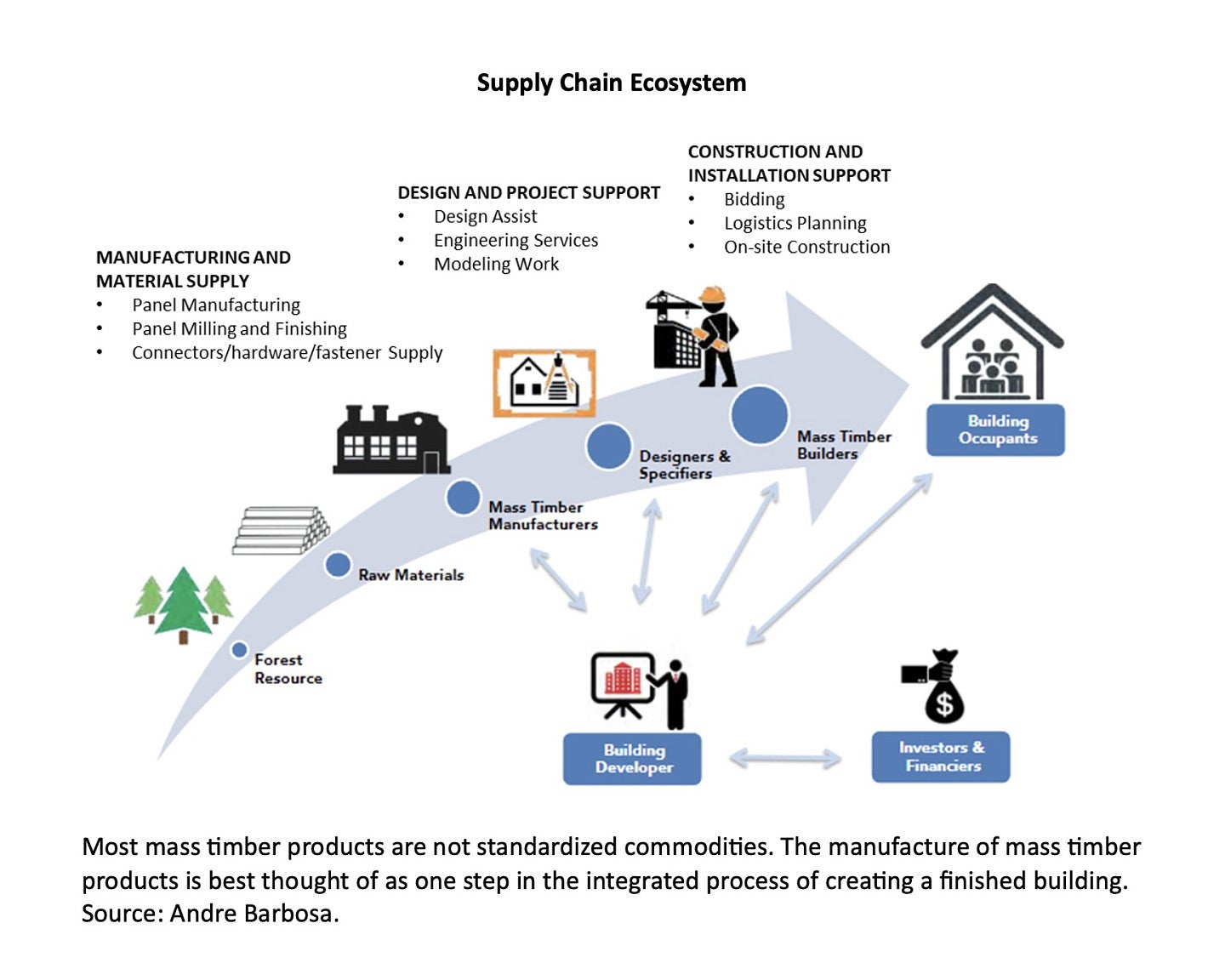EUGENE, Ore. — May 11, 2023 — A team led by the University of Oregon has been awarded $1 million from the National Science Foundation to drive innovations in mass timber architecture, engineering, and construction in the Pacific Northwest.
The grant is part of the NSF’s Regional Innovation Engines program, authorized by the CHIPS and Science Act of 2022. The program aims to catalyze robust partnerships to benefit regional economies, accelerate technological development, address social challenges, improve the United States’ global competitiveness, and create local, high-wage jobs.
Oregon and Washington residents are beset by myriad economic, social, and environmental challenges: Housing shortages and spiraling home prices have reached a crisis point in rural as well as urban communities; climate change has led to more serious and widespread drought and increasingly catastrophic wildfires; and employment opportunities have severely declined in forestry, one of the region’s longest-established natural resource-based economic drivers. All of these challenges are felt disproportionately by historically marginalized communities.
“Mass timber offers a means to holistically address all these challenges,” said Judith Sheine, professor of architecture at the University of Oregon and principal investigator of the NSF Regional Engine for Advancing mass timber technologies (OR, WA).
Mass timber includes engineered construction materials made from small pieces of wood that can be sourced from selectively harvested logs. It is a sustainable alternative to concrete and steel, and its use in buildings can reduce the carbon footprint of the U.S. building industry.
“The built environment is responsible for 47% of U.S. carbon dioxide emissions, with building materials and construction accounting for 20%,” Sheine said. “At the same time, mass timber buildings can help to improve forest health and reduce catastrophic wildfires, by using wood fiber from forest restoration projects. Mass timber can also offer a pathway to address the critical shortage of affordable housing on the West Coast, with cost-efficient prefabrication.”
With the NSF Engine Development Award, the University of Oregon will partner with Oregon State University, Washington State University, and over 25 other organizations — including state and local government entities, nonprofit organizations, mass timber manufacturers, fabricators, contractors, designers, and economic development organizations — to develop a Pacific Northwest innovation ecosystem within two years. After those two years, the team will be well positioned to prepare a strong proposal for a future Type-2 NSF Engine, which could yield up to $160 million in federal R&D investments over 10 years.
To create a healthy and prosperous mass timber ecosystem, Sheine says, investments in entrepreneurship, innovation, and workforce development are needed throughout. Similar supply chains could be developed for other wood products used in building construction.
“Our goal for this first phase of the award is to develop a blueprint, outlining key activities and strategies to establish a robust Regional Innovation Engine that spurs scientific discovery and equitable, inclusive economic development, while addressing urgent housing supply and affordability challenges, climate change, and economic revitalization.”
“In addition,” according to Andre Barbosa, professor of structural engineering at Oregon State University and project co-director, “this regional engine will drive advances in fundamental and applied knowledge to enable new technologies and products in mass timber across several thrust areas, including innovations encompassing seismic and fire safety, durability, and acoustics; net zero-carbon footprint, energy efficient designs; air quality, bacterial and viral load mitigation; and advanced building systems innovations in modular mass timber systems for affordable housing, energy and seismic retrofits, design for disassembly, and robotic/digital fabrication and construction.”
More information about the NSF Regional Engine for Advancing mass timber technologies (OR, WA) can be found at https://tallwoodinstitute.org/nsf-advancing-mass-timber-technologies/. The University of Oregon is also part of two other NSF Engine projects: One focused on semiconductor technologies that’s led by Oregon State University, and another on smart grid technologies under the direction of Portland State University. View a map of all NSF Engines Development Awards.
Media Contact:
Thuy Tran
University Communications
ttran5@uoregon.edu
541-346-1972
Source Contact:
Judith Sheine
Professor, Architecture
jesheine@uoregon.edu
541-346-8175

